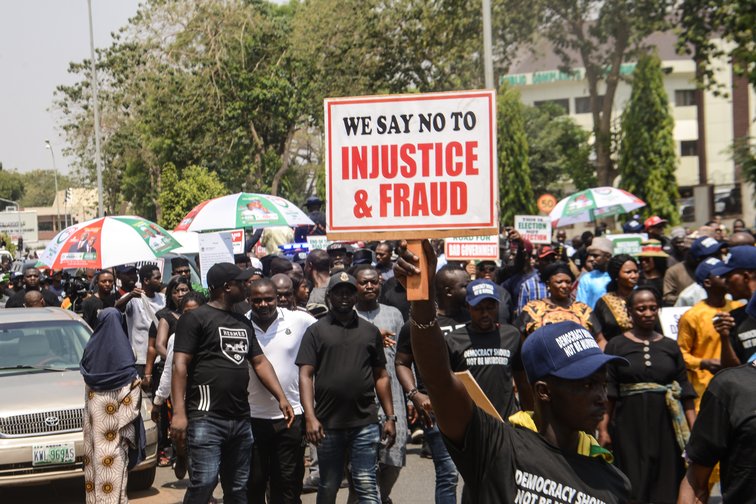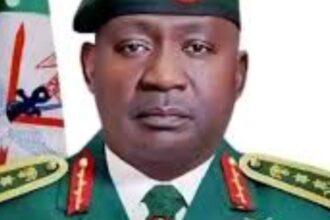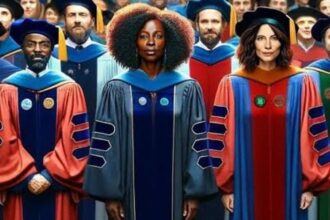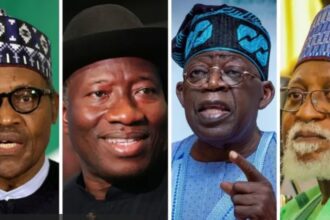BY ERNEST OSOGBUE
If you say that Nigeria is a nation of injustice, you cannot be too far from the truth. From independence injustice was perpetrated and since that time injustice has become a national pastime; from one individual to another, ethnic group to another ethnic group, from nation to citizen, and from citizen to nation, etc. In fact, the list is endless.
Almost every Nigerian has suffered one form of injustice or the other in the course of their life. Injustice has become a part of our psyche so much so that it is now a national norm and we have become numb to it and just wave it aside like an insignificant housefly.
To chronicle the several injustices that have been perpetrated in Nigeria would be to write a story that would never end.
First it was a group of southern soldiers who conspired against their nation and perpetrated a coup against a duly elected democratic government. This treasonable act led to the death of the two most prominent northern politicians of the time, one of them the Prime Minister.
To redress that injustice, the north took out its anger against south-easterners, believing that it was officers from that region who eliminated the two northern leaders. There was a killing spree of people of eastern extraction in the north, which ultimately led to the declaration of the Republic Biafra and finally a 30-month fratricidal war.
The war itself was unjust in so many spheres as much of the casualties on both sides were persons who had no direct relationship with issues that led to the war in the first place. Nigerians were forced to take sides by forces much more powerful than them as families were split in support of opposing sides to the conflict.
When the war was finally resolved and the proclamation of the ‘no victor no vanquished’ mantra was made, there was hope, and a lot of promises were made for national integration and unity. The twenty Pounds offered citizens of the then eastern Nigeria and several unfulfilled promises that linger to date have since torn to shreds that hope of national integration and unity and we must categorize all the above as forms of injustice.
When the government of General Yakubu Gowon was ousted from power, it was in a bloodless coup and Gowon is still alive today as an attestation to that fact. The Dimka coup against the Murtala Mohammed government can be seen as a form of injustice, as the murder of the leader was unnecessary and unduly sent the nation as well as the family and friends Murtala Mohammed left behind into mourning. The state however did its best by ensuring the arrest of those responsible for the killing.
The execution of Dimka and co is still up for debate whether it was injustice or otherwise. The Nigerian state recently made a determination that its prison system should be targeted at correction and reformation, as opposed to being punitive and vengeful. This has resulted in the recent change of nomenclature from the Nigeria Prison Service, to the Nigeria Correctional Services. This infers that the state is now more interested in reforming and correcting offenders, as opposed to the state punishing and exacting vengeance on them as was previously applicable.
The Buhari coup of 1983 and the Babangida coup of 1985 were said to be bloodless, so we can live with that. It means that when a group of soldiers jostle one another out of office from time to time without killing fellow citizens the system does not complain. This is an injustice to the Nigerian nation itself.
What should have been proper is that at the advent of democracy in 1999, there should have been a trial and conviction of all soldiers who ever took part in a coup against Nigeria. After conviction, the system could go ahead to pardon them using the turbulent political climate and uncertainty of the time as excuse. What this would have done is to make it clear that making a coup against Nigeria is unlawful and punishable. What we have on ground however, is that some authors and beneficiaries of coups are even the ones driving our democratic development today; this is injustice of the highest order to the Nigerian State, as it infers that we are rewarding wrongdoing.
During Babangida’s administration, there was the Orkar coup which led to several deaths. Though the coup failed, the perpetrators were rounded up and a good number of them were dispatched via the firing squad. The Criminal Justice System could have spared them, had the recent changes as mentioned above being in operation.
The Mamman Vatsa coup remains an injustice, this is because the coup never manifested, no life was ever lost, the coup remained at the level of conjecture even till today, so the question remains why were Vatsa and co executed? This was an injustice.
When Sani Abacha ousted the illegal Ernest Shonekan Interim National Government ING, it was seen as an illegal government taking over from another illegality. I still believe that since Shonekan accepted to serve in an illegal government, the fate of military officers who participated in a coup as discussed above should equally befall him.
The reign of terror under General Sani Abacha, the several assassinations and attempted assassinations as well as unsubstantiated coup attempts are great injustices to the Nigerian State. The hounding of the participants of the Abacha government and their trial is however an injustice, bearing in mind that all those who participated and carried out illegalities in other illegal military governments were never given the same treatment. How could the state single out the Abacha aides and commence their trial while allowing persons who carried out the same form of orders from other illegal governments go about freely without trial. This is great injustice to those concerned.
So far, we have been discussing the injustices involving the Nigerian State, however, since the advent of democracy, there is a constitutional injustice that has hindered and will continue to hinder Nigeria until it is addressed and redressed. The issue of federal character as embedded in the Nigerian Constitution is a great injustice to the Nigerian State and Nigerians. This principle clearly demonstrates that we are not a united people and that the only way people can have a sense of belonging to the Nigerian nation is by the appointment of persons from their state or ethnic group into government positions.
As has been proven over the years this perception is very far from the truth. It is clear from all indications, available statistics and the rumblings across the land, that one of the factors that make people to have a sense of belonging is not the presence of persons from their states in government, rather, it is the availability of development manifesting as social infrastructure viz; roads, electricity, pipe borne water, purchasing power, jobs etc. that make people to have a sense of belonging.
With this in mind, it becomes necessary to call on the national assembly and other relevant government agencies to commence the process or processes to amending the above section(s) of the Nigerian constitution
This Constitutional Injustice has ensured that there are first class and second-class citizens of Nigeria. Some states are said to be educationally backward, as a result, students from such states when seeking admission into higher institutions of learning, are allowed to have a lower qualification score than those from educationally advantaged states. It doesn’t end there, after graduation; those from educationally disadvantaged states have a higher chance of being promoted as a result of the paucity of persons with high qualification from their states. This policy has somehow ensured that less knowledgeable persons keep rising to the top.
What is proper is to challenge those from the so called disadvantaged states to work harder to meet up with their counterparts, but instead; mediocrity is being rewarded while excellence is being punished. No nation in today’s competitive world can afford to ignore its best and promote its worst and expect to remain relevant in the comity of nations. This particular injustice to the Nigerian nation must be redressed urgently.
No tribe in Nigeria can lay claim to having not been discriminated against. The Igbos as stated earlier, the Yoruba’s can claim injustice in the case of Abiola, but I believe the June 12th injustice is more an injustice to the Nigerian State than to the Yoruba’s. When Orkar made his coup, there was great injustice done the Hausa/Fulani’s when they were singled out for mention as the major problem of the Nigerian State. That is grossly an unfair statement and not only that, the coupists, also went ahead to excise some states from Nigeria thereby creating a wrong impression of Nigerians from those states. That is a great injustice.
All minority tribes have been victims of injustice and continue to be by the nature of Nigeria which only recognizes those who shout the loudest. Since minority tribes have no voices, it means therefore that they cannot be heard. Recently, the Fulani tribe has been a victim of great injustice following the criminal activity of cattle rustling especially in the northern part of the country. In trying to resolve the problem, they resorted to self-help leading to injustice against other tribes. The Nigerian State must take responsibility for failing to protect its citizens and their livelihood in this respect.
This writer may not be able to point out all injustices perpetrated by the state against citizens and vice versa, but the numerous injustices enumerated above give a clear picture to the reader that this is a land of injustice. As you read along kindly add the injustices you can remember perpetrated by or against one segment of the society or the other. There is no need for sentiments, if we as a nation are to receive healing, we must come clean and be honest with ourselves so that the Almighty God can help us in our drive to birth a new Nigeria where no man is oppressed.









